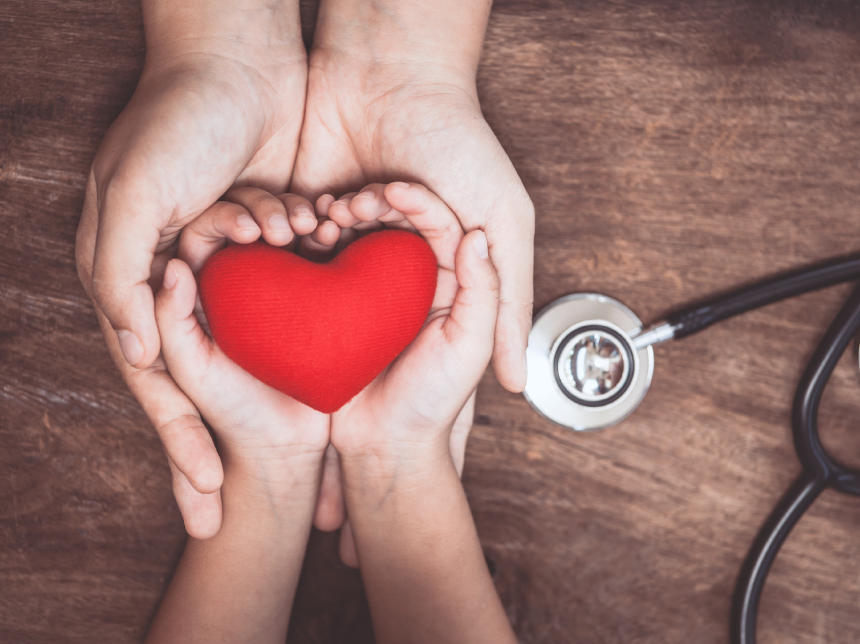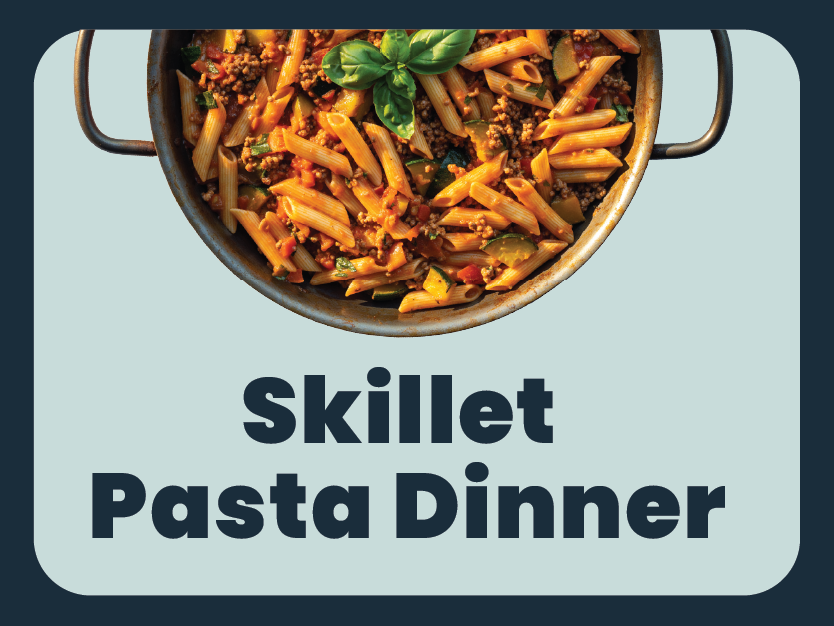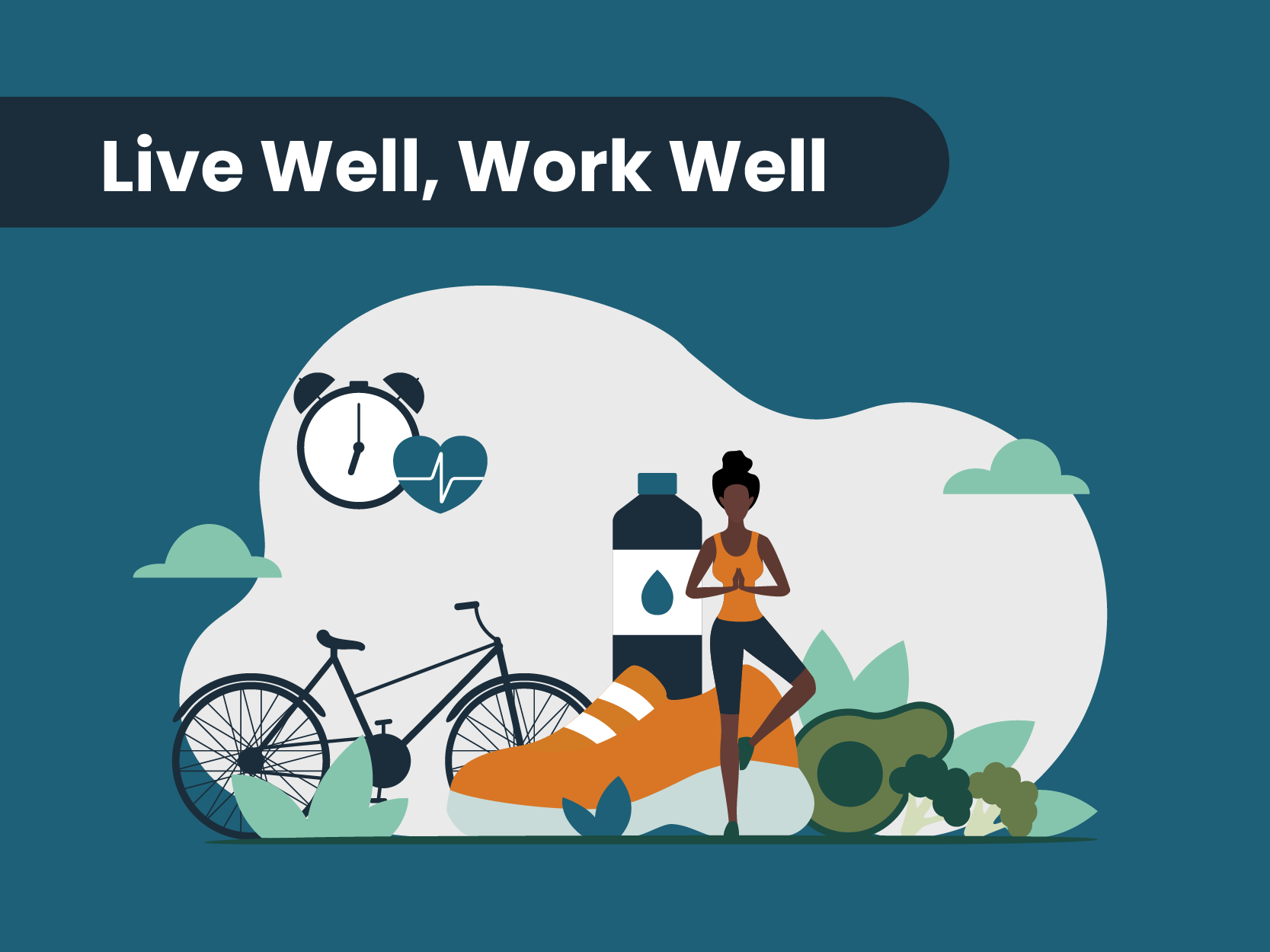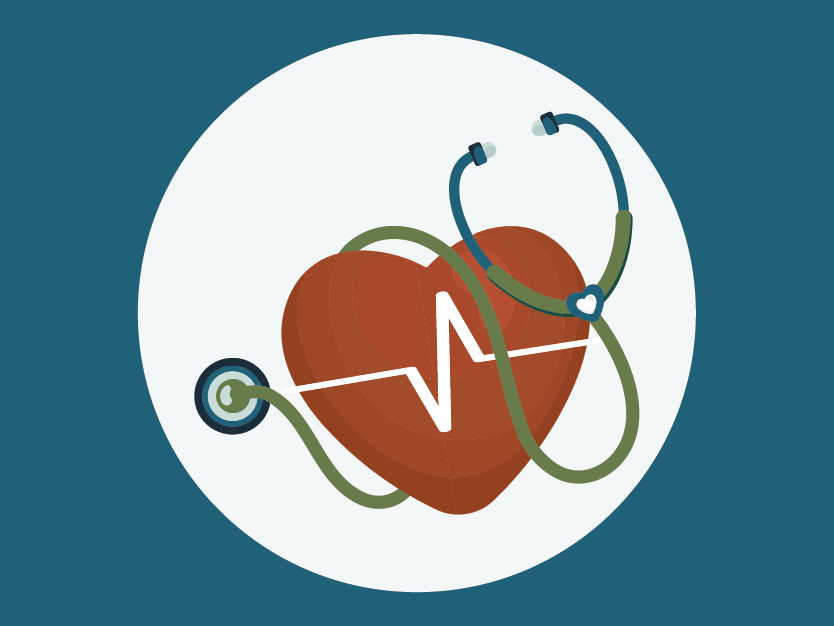Skillet Pasta Dinner
A quick and delicious one-pot meal that is sure to please the whole family. Add your favorite frozen or fresh veggies to this dish!

High blood pressure, also known as hypertension, is a condition that puts you at risk for heart attack, stroke, and kidney disease. It does not usually cause symptoms but can be serious. Elevated blood pressure, or prehypertension, will likely turn into high blood pressure unless lifestyle changes are made.
When you get your blood pressure checked, you will receive 2 numbers, like 140 over 90. The top number, also called systolic pressure, measures the pressure inside your arteries when your heart is contracting. The bottom number, called diastolic, is the pressure inside your arteries when your heart is relaxed.
Elevated blood pressure is a term healthcare professionals use as a warning. People with elevated blood pressure do not yet have high blood pressure but their levels are not as low as it should be for good health.
Here are a few lifestyle changes you can make to improve your heart health and lower blood pressure.
If you have more questions about your life with high blood pressure contact one of our health coaches today or call us at 1-866-511-0360.
Want advice on changing your diet and starting your journey towards a healthier life? Start here.
You can track your blood pressure at home with our myHealthCheck360 app and your blood pressure cuffs. The app keeps all your health data in one place! Download today.
*This guide is not meant to take the place of a physician visit nor can it diagnose illness or medical problems. It is designed to give you information relating to your health risks and overall wellness. This information is provided to help you develop a plan of action to make healthy lifestyle changes. HealthCheck360 uses scientifically validated research to help you identify risks or behaviors that may cause or lead to chronic illness. Our program concentrates on risk factors that can be modified and that you should be able to effectively control, maintain, and/or improve.

A quick and delicious one-pot meal that is sure to please the whole family. Add your favorite frozen or fresh veggies to this dish!

Nutrition is the foundation of health, influencing disease prevention and overall well-being.

February is Heart Health Month—a perfect time to focus on the habits that keep your heart strong.